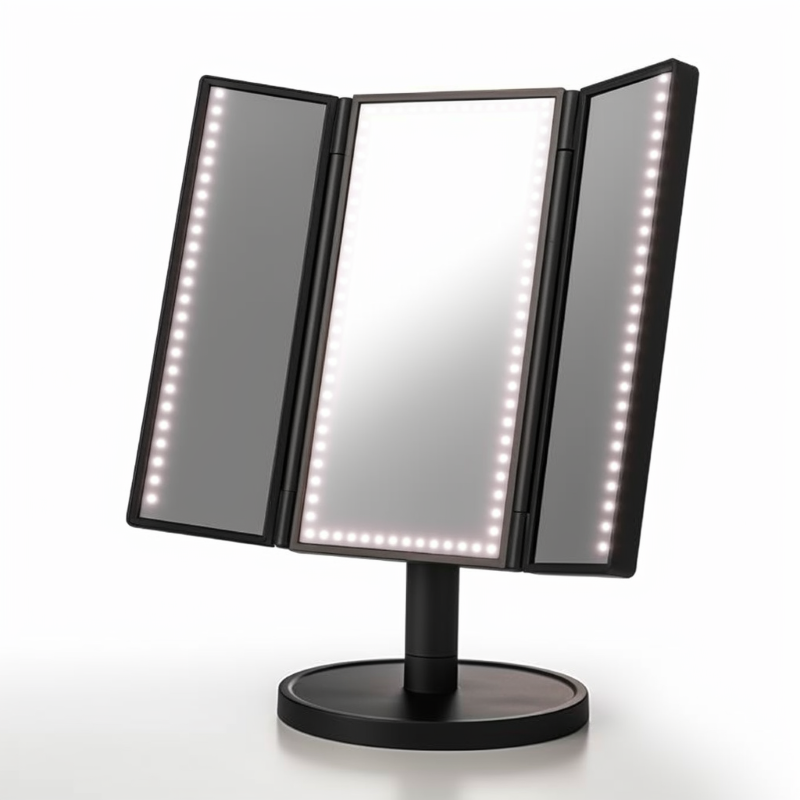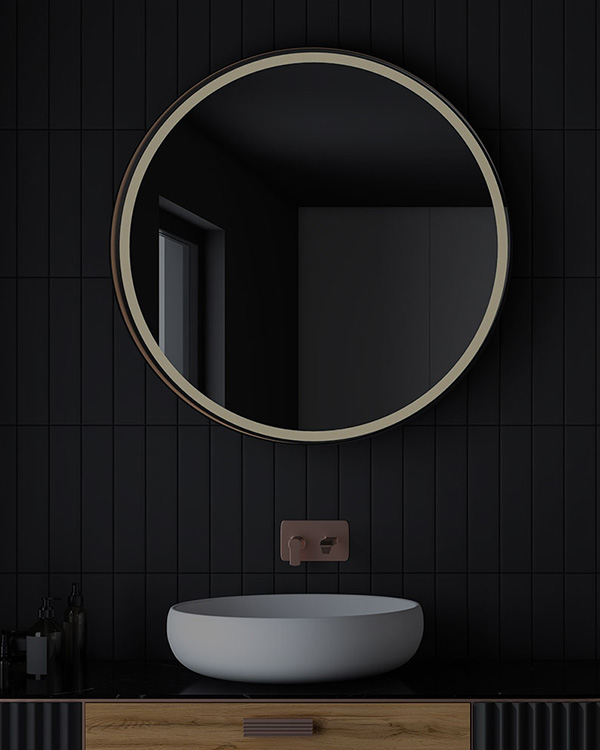Best Smart Mirrors for Home Use
With the advancement of science and technology and the widespread use of new materials, we are seeing more and more combined products in the commodity market, making the boundaries between commodities increasingly blurred. Among them, home smart mirrors have been popular in recent years as an innovative and functional addition to modern homes.
How to choose Smart Mirror Bathroom?
These mirrors are not only more integrated into the overall style of home or space decoration in terms of shape and material, but also functionally demonstrate the capabilities of various manufacturers and brands in product development and combination. Therefore, when looking for the most suitable smart mirror for home use, we need to analyze and select carefully one by one:
Function set: Different smart mirrors provide various functions, such as voice assistants (each leading technology company has its own ecology), health monitoring, weather forecast, etc. Users need to choose a smart mirror that can meet the functions they need based on their own needs and preferences. Of course, the more functions it has, the higher the price, which also tests the quality control of the mirror itself.
Appearance and size: Smart mirrors can have a variety of appearance designs and size expansions, making them very suitable for customization. To adapt to different space aesthetics. When choosing a smart mirror, the first consideration is how it matches the available space and the overall appearance of your home.
Installation: Most smart mirrors are designed to be wall-mounted, while others can be freestanding or placed on a countertop. When installing a wall-mounted smart mirror, you must first strictly follow the installation instructions and what tools are needed. If you need to perform power connection operations, be sure to ask professional technicians to complete it to avoid ineffective and dangerous operations on your own. Personal safety is the first factor.
High quality: When users control the quality of smart mirrors, the first thing they focus on is whether the overall mirror surface has high reflectivity, whether the picture presented by the mirror surface is clear, and whether there are unevenness and burrs on the edges and corners of the mirror. These will directly affect the user experience.
Connectivity: Many electronic smart products can connect to your home's Wi-Fi network, allowing you to access online content and update information in real time. Smart mirrors are no exception, so when choosing the right one make sure it’s compatible with your network and other devices in your home.
Voice control: If the smart mirror chosen by the user is connected to the electronic ecology of the home, this can greatly improve the quality of life. For example, users who are used to making phone calls hands-free at home can choose smart mirrors with voice control capabilities, allowing users to access information or control smart home devices using voice commands.
Health monitoring: Many smart bracelets or watches can now monitor the user's heart rate and blood pressure in real time, especially during exercise and fitness. Therefore, some smart mirrors are specially tailored for fitness enthusiasts, providing exercise guides, tracking health, diet and nutrition and other indicators, and providing scientific fitness habits. If health and fitness are a priority for the user, choose a mirror with these features.
Customization: We have previously had a dedicated article introducing the aspects covered by the customization of smart mirrors. You can refer to the previous blog. What users need to consider is the extent to which the shape, surface and functionality of a smart mirror can be personalized to suit their specific needs and preferences.
Price and budget: The price of smart mirrors varies greatly due to the modeling process, material selection, and function selection. Therefore, you must set a reasonable budget and find a mirror that is within your price range and can provide the functions you need. .
User reviews and feedback: If you are accustomed to online shopping, before purchasing a smart mirror, you can check user reviews and feedback under related products, or log in to the official website of the smart mirror to view detailed warranty information. If necessary, you can Contact the manufacturer directly to learn about the performance, reliability and warranty of the smart mirror you're interested in.
In short, how to define the best home smart mirror does not depend on how exquisite its shape, how complete its functions, or how expensive it is, but whether it best suits your life needs.

How to Choose Smart Mirror Manufacturers?
Choosing the right smart mirror manufacturer is crucial for businesses aiming to integrate cutting-edge, high-quality products into their product catalog or brand matrix.
1. Assess Technological Expertise
Innovation Focus: Look for manufacturers that prioritize innovation and invest in research and development. Their product range should reflect the latest in smart mirror technology, including features like LED lighting, touch screen controls, gesture recognition, and integration with smart home ecosystems.
Customization Capabilities: Ensure the manufacturer can offer customization options that meet your specific needs, whether it's in terms of materials, size, styling, functionality or integration capabilities.
Hangzhou Lofter Opto-Elec Tech Co., Ltd., with its established reputation in the LED mirror market, emphasizes a robust approach to customization, allowing the company to meet a wide array of client needs and preferences. This strategic focus on personalization is critical for remaining competitive and innovative in the dynamic home decor and smart technology sectors.
2. Evaluate Product Quality and Certifications
Quality Assurance: Investigate the manufacturer's quality control processes. High-quality materials and construction not only ensure durability but also reflect well on your brand.
Certifications: Look for relevant certifications that guarantee product safety and compliance with international standards, such as CE, FCC, RoHS, or UL. This is crucial for market acceptance and customer trust.
Lofter's array of certifications, encompassing CE, UL, PSE, SAA, ROHS, ISO, and IP44, represents a robust commitment to quality, safety, and international compliance.
3. Consider Manufacturing Capacity and Scalability
Production Capacity: The manufacturer should have the capability to meet your volume requirements without compromising quality, even as your needs grow.
Scalability: Choose a manufacturer that can scale production up or down based on market demand, ensuring flexibility and responsiveness to changes in your business environment.
4. Check Compatibility with Your Product Ecosystem
Integration: The smart mirrors should be compatible with a wide range of smart home systems and devices, enhancing their appeal to tech-savvy consumers.
Software Support: Look for manufacturers that offer strong software support and regular updates to keep the mirrors compatible with the latest devices and technologies.
5. Review After-Sales Support and Warranty
Customer Service: Effective after-sales support is vital. The manufacturer should provide prompt and reliable service to address any issues that may arise post-purchase.
Warranty Terms: Understand the warranty terms and what they cover. A robust warranty indicates the manufacturer's confidence in their product's reliability and longevity.
6. Analyze Cost and Value Proposition
Competitive Pricing: While cost should not be the sole deciding factor, it's important to ensure that the pricing structure offers good value for the features and quality provided.
Value-Added Services: Some manufacturers may offer additional services such as branding options, marketing support, or drop-shipping, which can add value to your business relationship.
7. Sustainability and Ethical Manufacturing
Eco-Friendly Practices: In line with global trends towards sustainability, consider manufacturers that employ environmentally friendly production processes and materials.
Ethical Standards: Ensure that the manufacturer adheres to ethical labor practices and has a good reputation in the industry.




